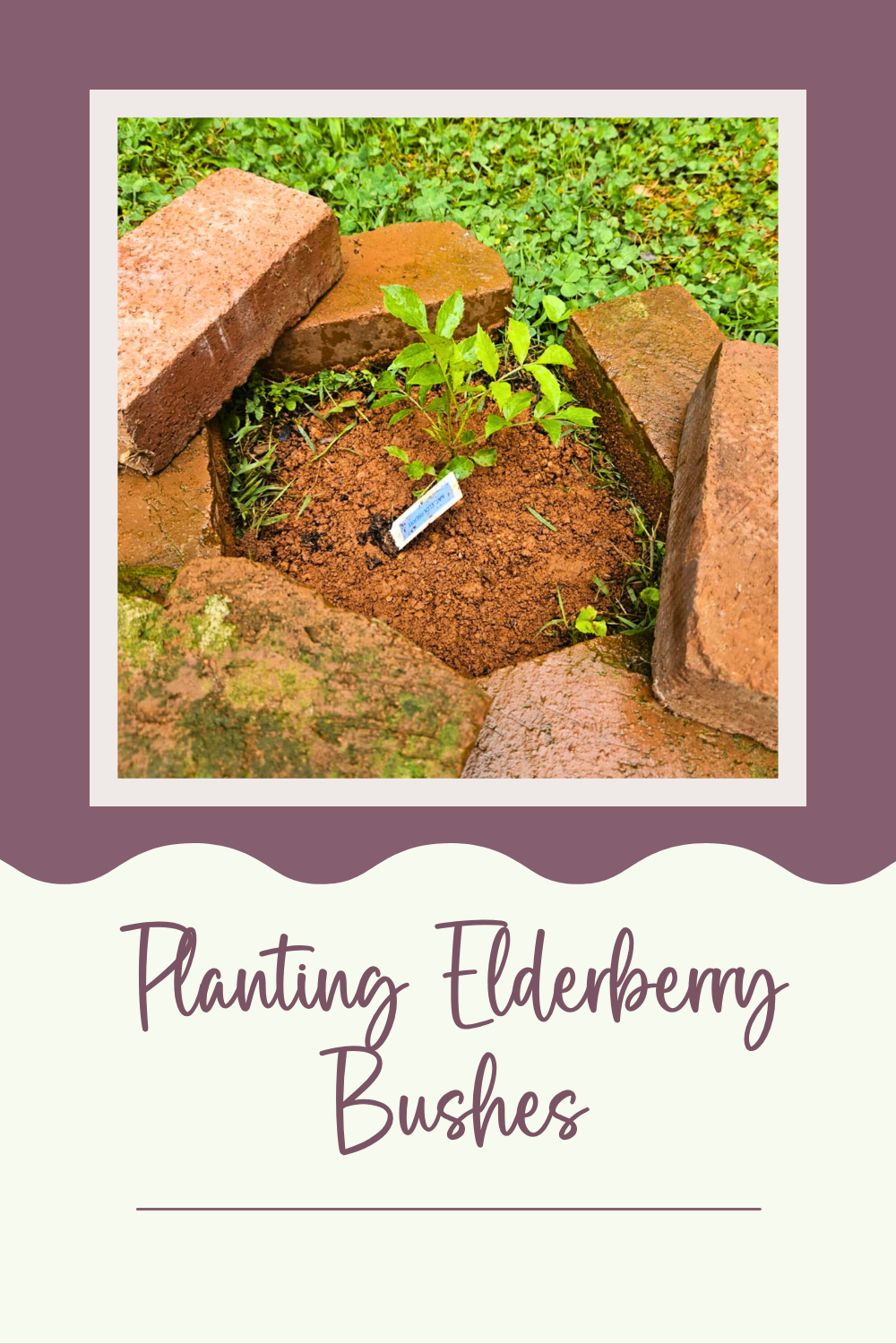This spring I was so excited to get some bare root elderberry bushes from a local farmer. Elderberries make an excellent privacy hedge and can be used for so many immune system supporting recipes like elderberry syrup. I’m going to walk you through planting elderberry bushes from bare root cuttings.
Benefits of Elderberry
Elderberries have antiviral properties and are rich in antioxidants, which aids in immune support. Homemade elderberry syrup is an excellent addition to your diet to keep your immune system healthy. Elderberry syrup can also reduce cold and flu symptoms and aid in a faster recovery.
It is important to note that raw elderberries, bark, and leaves are toxic and should never be consumed. Make sure you are properly cooking your elderberries before eating.
Planting Elderberry Cuttings
- Start by digging a hole twice as wide as the root ball and slightly deeper. You’re going to plant your elderberry up to the first branch node.
- Spread some compost in the bottom of the hole.

3. Spread the roots and fan them out evenly across your compost.

4. Fill the hole with soil, pressing down gently to compact the soil as you fill. Add soil to the first branch node on your elderberry plant.

5. Space your elderberry bushes 6-8 ft apart within rows and space rows 10-12 ft apart.
5. Elderberry plants need 1 – 2″ of water per week for the first two years.

Pin It For Later



Leave a Reply